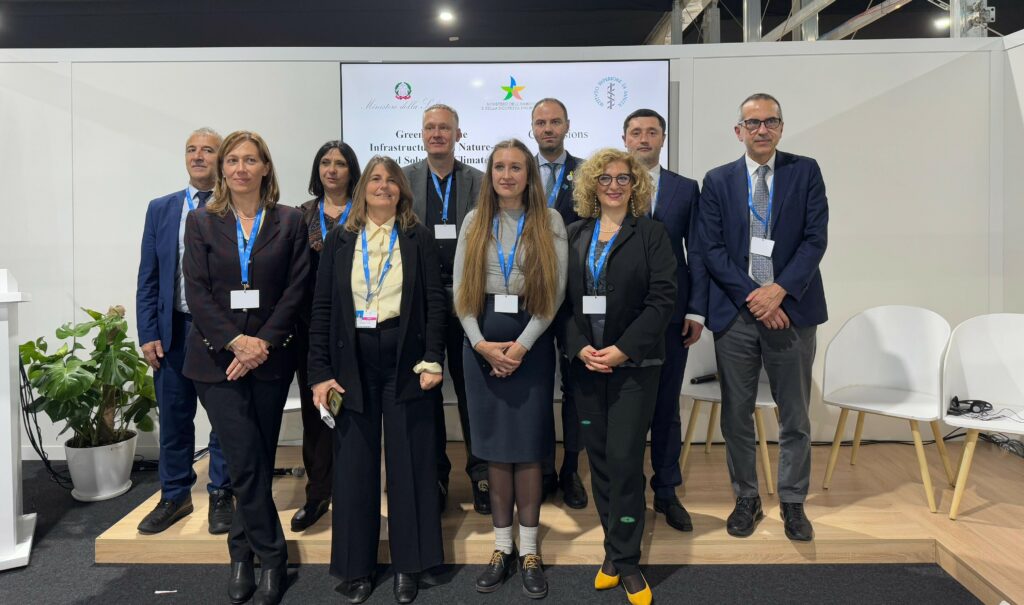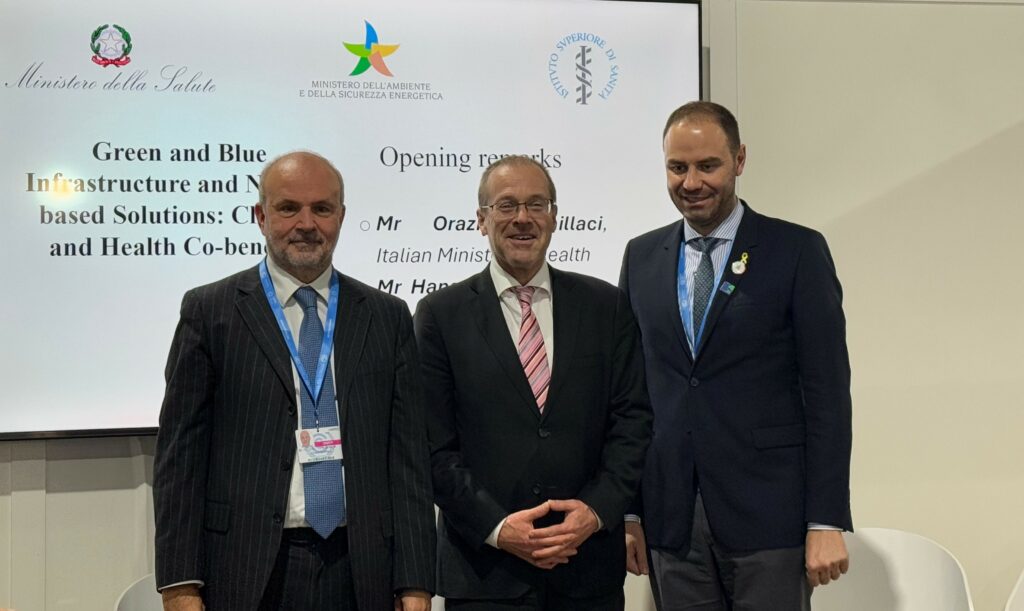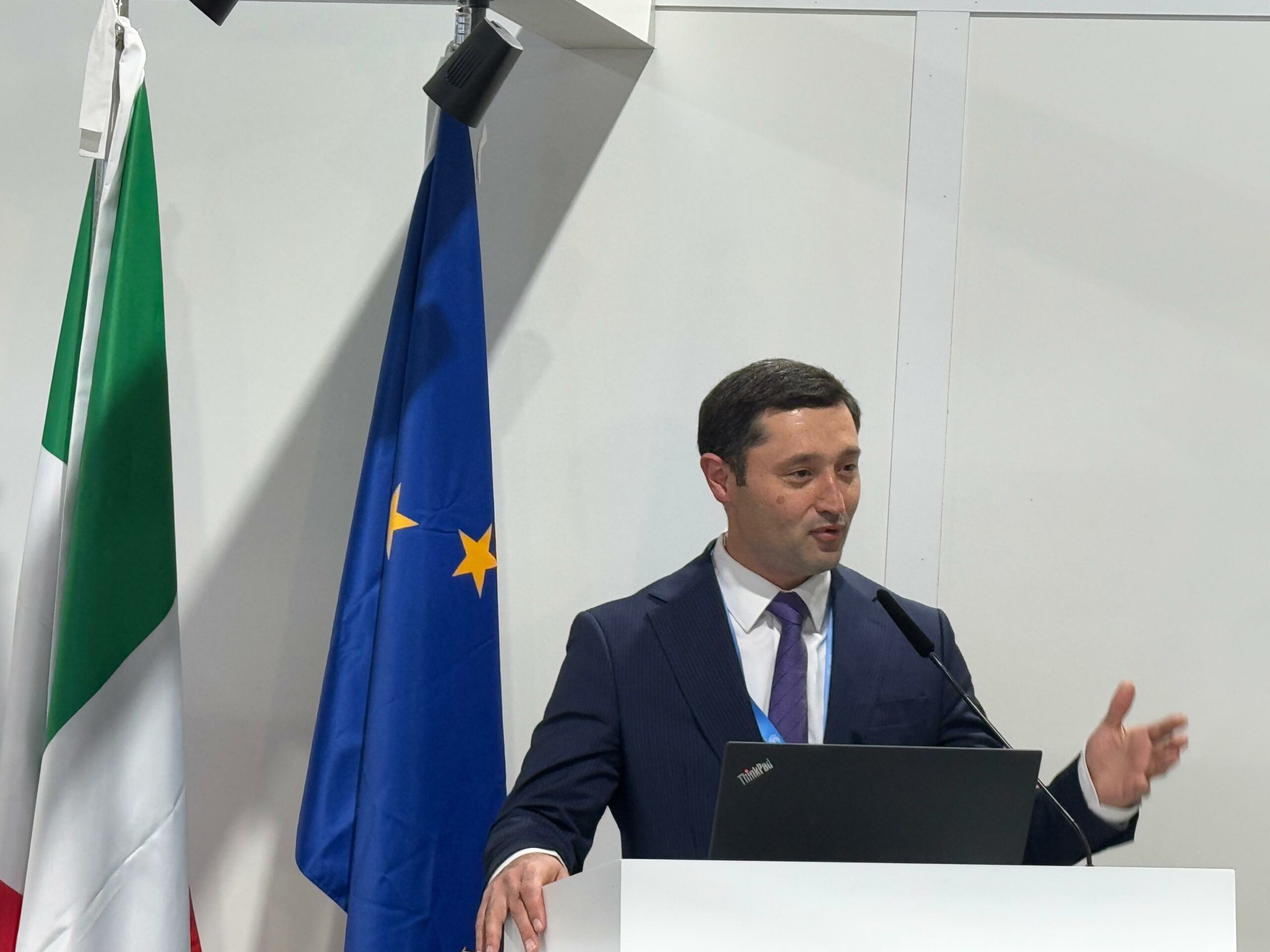COP29. Zafar Makhmudov believes transparency and measurable outcomes are crucial for Nature-Based Solutions
“CAREC recognizes that sustainable and inclusive climate action must be grounded in data-driven decision-making, measurable outcomes, and transparent processes. Central Asia is a region where climate challenges and opportunities are deeply intertwined. Its vast steppes, deserts, and mountain ecosystems are home to diverse communities and resources that are increasingly vulnerable to the effects of climate change. Addressing these challenges requires not just local action but coordinated, transparent regional cooperation,” the Executive Director of the Regional Environmental Centre for Central Asia (CAREC), Zafar Makhmudov, stated at the Italian Pavilion Side Event, “Green and Blue Infrastructure and Nature-based Solutions: Climate and Health Co-benefits,” on 18th November 2024.
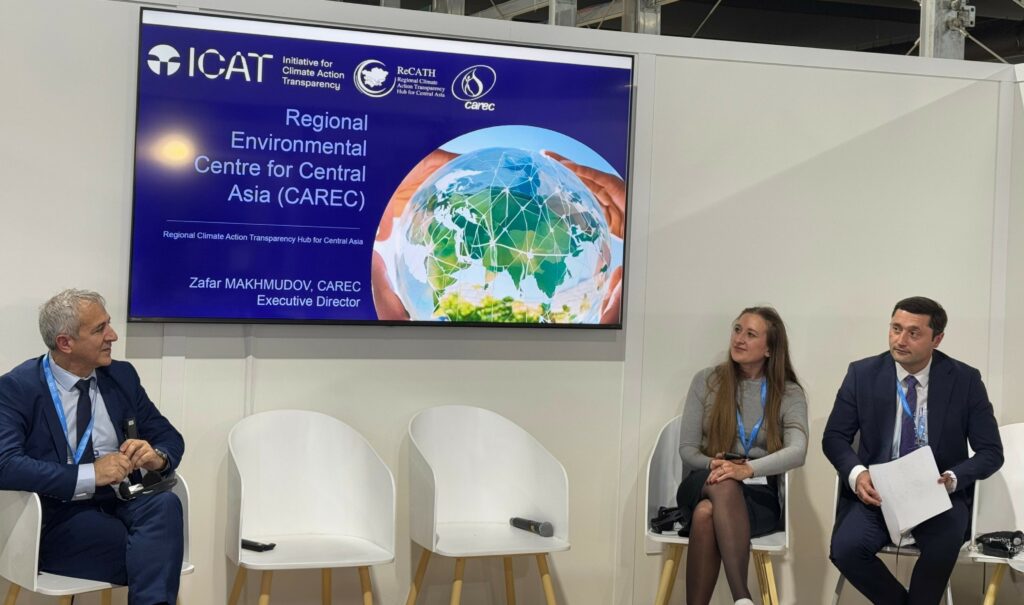
He emphasized the importance of transparency, collaboration, and measurable outcomes in the shared climate agenda.
“Through our Regional Climate Action Transparency Hub (ReCATH), we have been helping countries build robust systems for measuring, reporting, and verifying (MRV) greenhouse gas emissions, adaptation progress, and climate finance flows,” said Zafar Makhmudov.
According to him, regional cooperation in Central Asia offers significant opportunities for promoting transparent climate action. He believes that by sharing knowledge, harmonizing policies, and fostering trust among stakeholders, the countries can standardize and share data for better climate planning and implementation, align cross-border projects to address transboundary challenges such as water scarcity and desertification, and attract more financing for climate action by demonstrating transparency, measurable progress, and accountability.
Zafar Makhmudov stressed that transparency and measurable outcomes are crucial in implementing Nature-Based Solutions (NBS).
“In Turkmenistan, we have restored traditional sardobas, blending historical practices with modern approaches to sustainable water management. In Kazakhstan and Uzbekistan, we’ve supported the cultivation of black saxaul to rehabilitate the Aral Sea’s dried seabed, providing ecological and climate benefits that are both measurable and replicable. In Kyrgyzstan, we’ve facilitated the development of sustainable grazing routes, reducing land degradation and supporting livelihoods,” Zafar Makhmudov gave a few examples.
“Each of these initiatives demonstrates how regional cooperation can lead to scalable solutions with measurable outcomes. CAREC plays a pivotal role as a trusted convener and technical partner, ensuring that these collaborative efforts lead to actionable results and sustainable impact,” Zafar Makhmudov stressed.
“The path to resilient and sustainable development in Central Asia lies in promoting transparent, inclusive, and measurable climate action. Through regional cooperation, we can amplify our collective impact and contribute to global climate goals while ensuring benefits for local communities and ecosystems,” Zafar Makhmudov finished his speech.
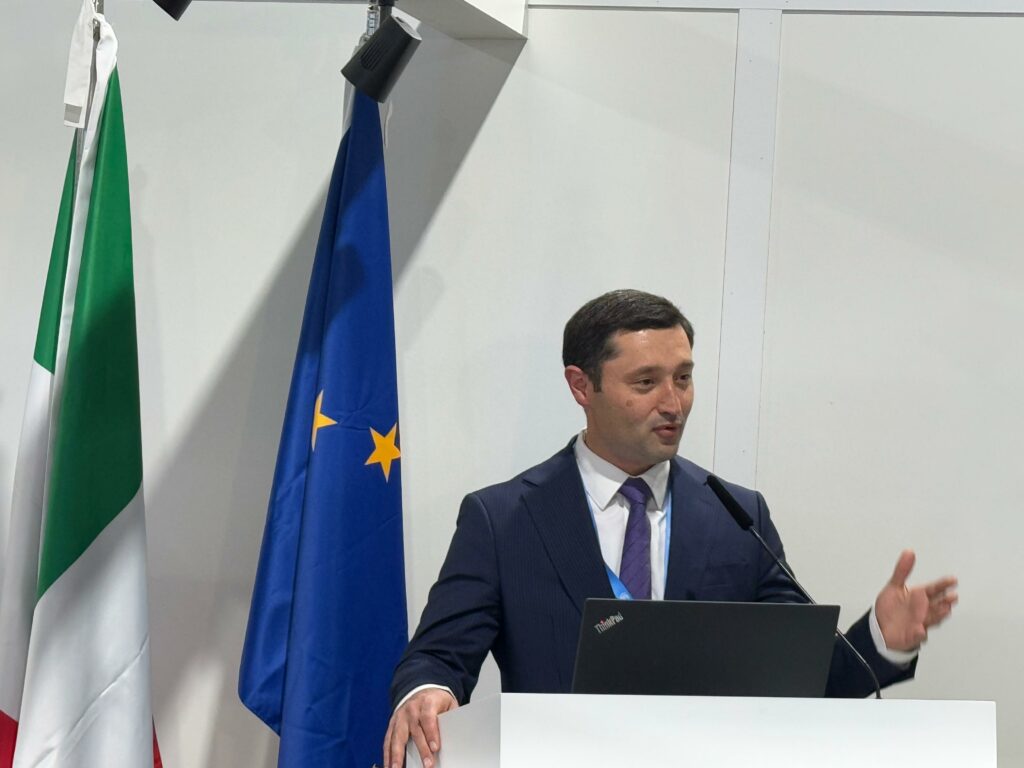
The event on November 18, 2024, at the Italian Pavilion during COP29 in Baku, Azerbaijan, focused on Green and Blue Infrastructure and Nature-Based Solutions (NBS) that yield climate and health co-benefits. Organized by the Italian Ministry of Health (IMH), Italian Ministry of Environment and Energy Security (IMEES), and National Institute of Health, Italy (NIH), the agenda included keynote speeches and presentations by prominent figures, such as Orazio Schillaci from the Italian Ministry of Health and Hans Henri P. Kluge from WHO Europe. Discussions encompassed Italy’s NBS initiatives, WHO’s collaborative environment and health partnerships, and strategies for enhancing climate-resilient agri-food systems, particularly in Central Asia, thus fostering regional cooperation to achieve sound climate actions and measurable outcomes.
Annalidia Pansini and Alessandra Fidanza served as Senior Experts at Sogesid spa, an entity under the Italian Ministry of Environment and Energy Security, and contributed their expertise in discussions as moderators of the side event.
